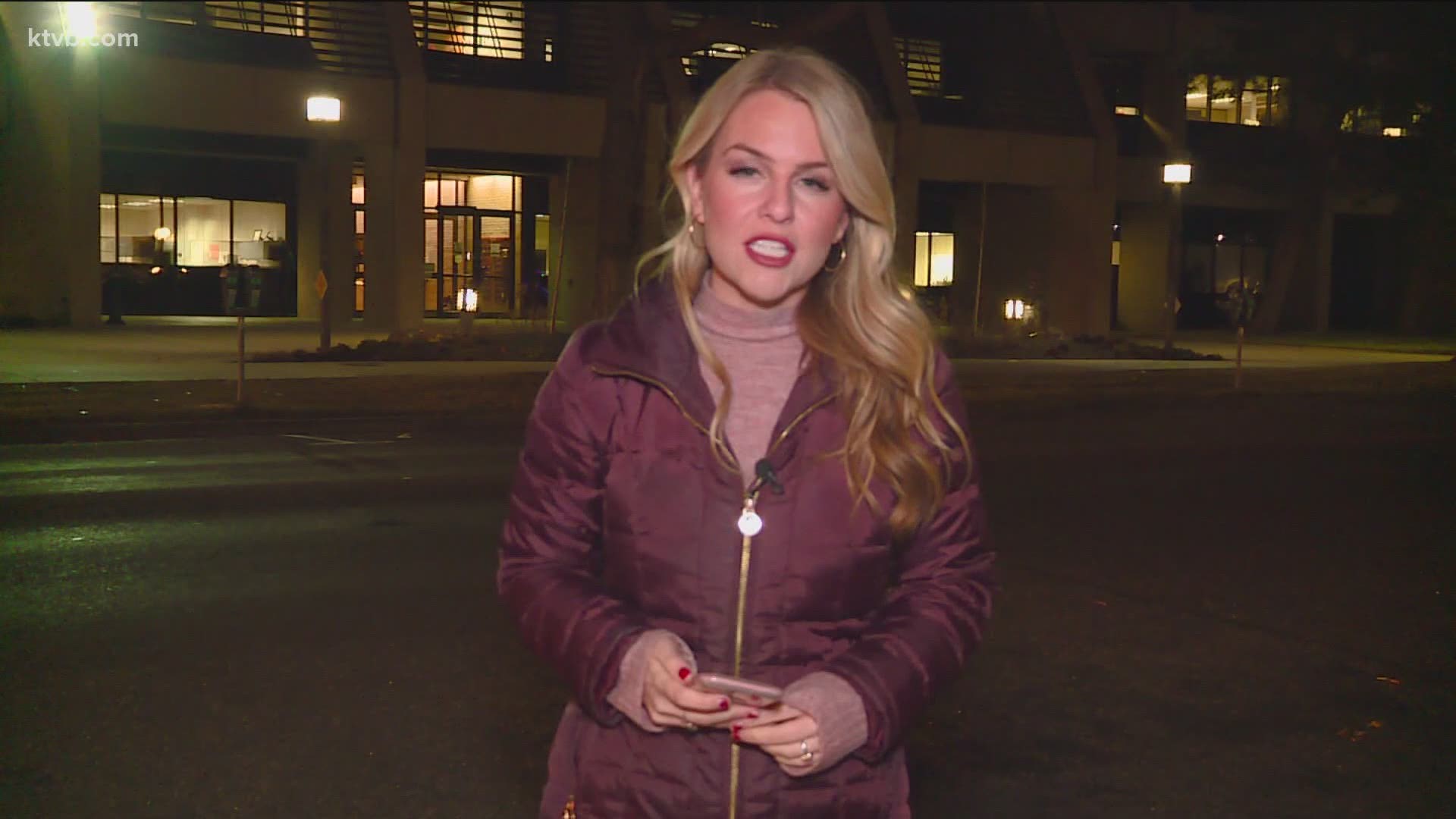BOISE, Idaho — The Idaho Board of Health and Welfare voted unanimously Friday morning to adopt a temporary rule that will allow hospitals to move into crisis standards of care if the COVID-19 surge reaches the point at which there are not enough healthcare resources for all the Idahoans who need them.
The passing of the rule does not mean that crisis standards go into place now, although doctors and hospital leaders have warned that that scenario is not far off if coronavirus cases continue to rise unchecked.
Rather, the rule allows providers "to implement crisis strategies to address scarce resource situations when the usual standard of care cannot be provided."
At its grimmest, crisis standards of care would see hospitals' limited resources - ventilators, medicine, nurses - earmarked for those patients deemed most likely to survive. But Elke Shaw-Tulloch, administrator for the Idaho Division of Public Health, told board members that crisis standards could also mean using other treatments than the ones commonly used, or "repurposing" hospital staff to do jobs other than the roles they typically fill.
Director of Idaho Health and Welfare Dave Jeppesen said that resources are already dwindling in Idaho.
"What we tend to see as the limiting factor right now is the staff and that's primarily, Idaho has suffered a shortage for many years of qualified nurses and doctors, and then during the pandemic so many of them out sick either due to having covid themselves or having been exposed to covid," said director of Idaho Department of Health and Welfare Dave Jeppesen.
"There is a lot of work that is happening right now to establish a standard of care, to keep pushing to prevent us from actually having to reach that crisis standard of care," she said.
According to the rule, Jeppesen can institute crisis standards in a situation where resources have become stretched critically thin and "all options for addressing resource limitations have been pursued." Crisis standards can be put into place without having to seek a greenlight from Idaho Gov. Brad Little.
"Crisis standards of care are a very last resort, and I hope we don't have to implement them," Jeppesen said. "It is preventable, if people choose to follow the recommended guidelines."
Little announced Thursday that Idaho will remain held in Stage 2 of the reopening plan as COVID-19 cases and deaths continue to mount, but again declined to pass a statewide mask mandate, close bars or other businesses, or pursue any enforcement of existing recommendations for social distancing and gathering sizes.
The governor repeatedly said he would leave COVID-19 responses up to the local government and called for people to practice personal responsibility, even as he acknowledged that in many areas of the state, Idaho residents are not doing so.
The piecemeal approach to COVID-19 restrictions has drawn criticism and concern from hospital leaders and elected officials. IDHW board vice-chair Jim Giuffre expressed his gratitude to healthcare workers as the meeting began, but said he is concerned that the local approach "isn't working."
"They're fatigued, they're frustrated, they're heartbroken that the public is not supporting them," he said. "A statewide approach may be more prudent."
Idaho reported 22 deaths and more than 1,400 new confirmed positive COVID-19 cases on Thursday. The state is expected to surpass the 100,000 mark for confirmed cases by the end of Friday.
At KTVB, we’re focusing our news coverage on the facts and not the fear around the virus. To see our full coverage, visit our coronavirus section, here: www.ktvb.com/coronavirus.
Facts not fear: More on coronavirus
See our latest updates in our YouTube playlist:

